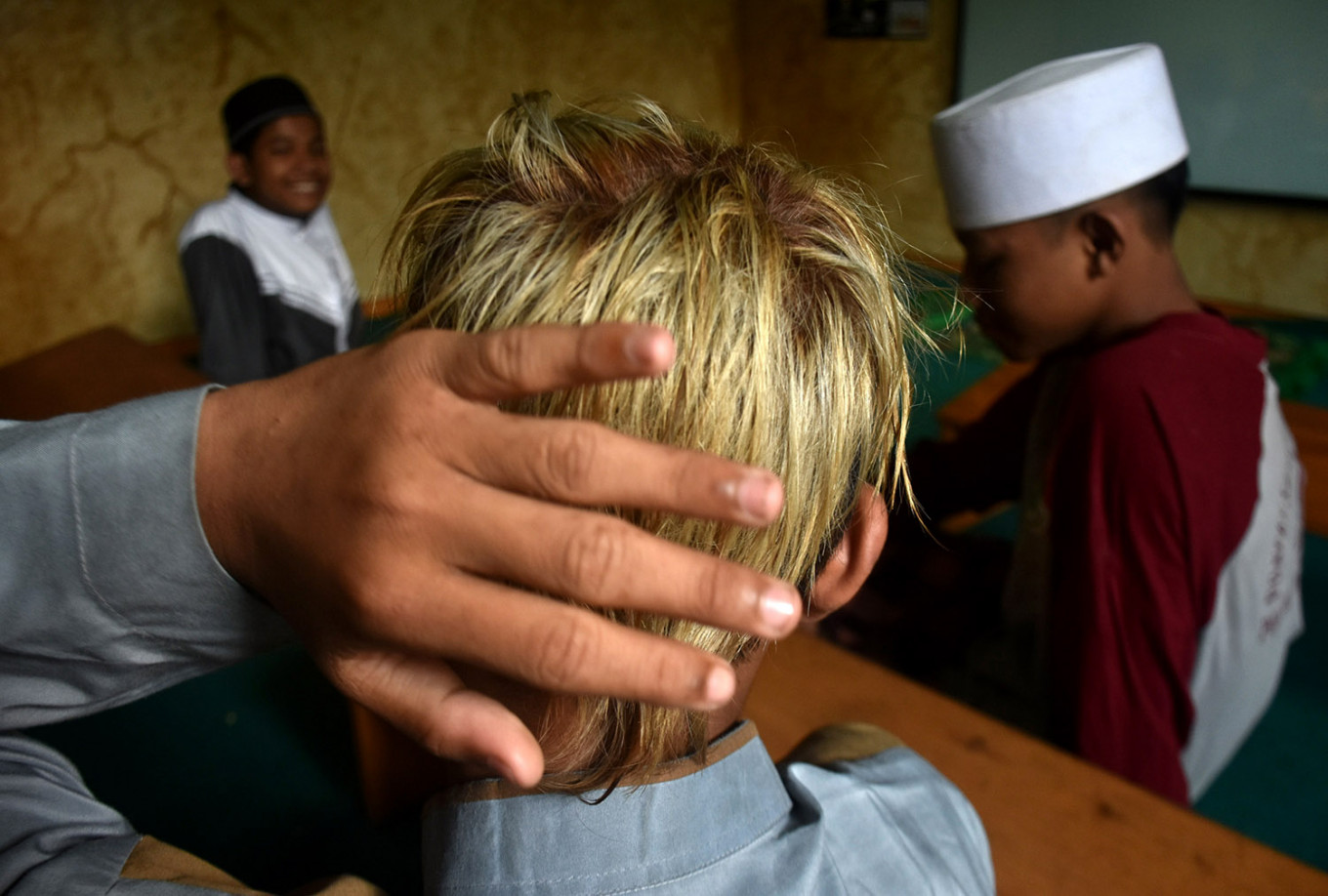Popular Reads
Top Results
Can't find what you're looking for?
View all search resultsPopular Reads
Top Results
Can't find what you're looking for?
View all search resultsDrug users belong in rehab
Overcrowded prisons are a result of the punitive attitude of the judiciary, prosecutors and law enforcement officers, particularly regarding drug users.
Change text size
Gift Premium Articles
to Anyone
A
proposal to introduce mass clemency for convicted drug users and to revise the Narcotics Law as part of the country’s judicial reforms has been presented by a government-sanctioned but independent team to President Joko “Jokowi” Widodo.
Among the reasons behind the recommendations is the reduction of the chronic overcrowding facing many prisons across the country, on top of the problems of underfunding and understaffing.
Data from the Corrections Directorate General of the Law and Human Rights Ministry show that hundreds of correctional facilities across the country house more than 228,000 inmates, almost double the maximum capacity of around 129,000. The judicial reform team says that most of the inmates are behind bars because of drug-related crimes.
This pattern occurs almost every year. Many activists and experts have attributed the overcrowded prisons to the punitive attitude of the judiciary, prosecutors and law enforcement officers, particularly regarding drug users.
The judicial reform team is suggesting mass clemency as a temporary solution while recommending the government revise the 2009 Narcotics Law, which often justifies the imprisonment of drug users, when it would be better for them to undergo rehabilitation to help them recover from addiction.
The team insists that inmates serving prison terms for abusing drugs are not repeat offenders and rarely break prison rules, therefore are eligible for clemency. They also say that the government should treat drug addicts as patients in need of help, rather than criminals, and provide clearer guidelines on how to send drug addicts to rehabilitation centers.
The law, which is among the world’s harshest, permits judges to sentence drug users and victims of drug abuse to rehabilitation programs rather than prison, but the option is most of the time dismissed. On the other hand, the police and prosecutors tend to classify drug addicts as drug traffickers and charge them with drug possession, an offense which carries hefty prison sentences and for which, offenders are not eligible for rehabilitation.
This has continued to happen even after seven state bodies – the Attorney General’s Office (AGO), the Supreme Court, the National Police, the National Narcotics Agency, the Health Ministry, the Social Affairs Ministry and the Law and Human Rights Ministry – signed a decree on rehabilitation for drug addicts and victims of drug abuse in 2014, a few years after the law came into force.
Activists were quick to welcome the proposals from the team, saying that the government should shift the focus to efforts to decriminalize drug use and treat addiction as a medical issue rather than a crime. Mass clemency will not be tenable without changing the punitive attitudes of the judiciary, prosecutors and law enforcement officers regarding drug users.
Drug use remains a serious and unchanging problem despite Indonesia taking draconian measures, such as the death penalty for drug dealers under the Narcotics Law. In the first three years of Jokowi’s presidency 18 drug convicts were executed as part of the fight against drugs. The executions were suspended in 2017 following domestic and international pressure.
Sending drug users to jail does not solve the problem. Instead it creates a large addicted inmate population, which will not help them overcome their addiction or stop them from being a market for drug dealers.
People who use drugs for personal use need help, not jail. Some experts argue decriminalization of drug addiction could reduce the stigma and discrimination that has so far hindered access to medical care.
We support the proposed mass clemency and revision of the Narcotics Law with a caveat that the government should not shift the problem of overcrowding from penitentiaries to rehabilitation facilities.
The government should improve rehabilitation facilities and set standards for rehabilitation programs because many state-sponsored rehabilitation programs are ineffective due to inadequate facilities and a lack of human resources.
The ball is now in the government’s court. The sooner the recommendations are implemented the better and one of the acute problems in the fight against drugs can be addressed.











